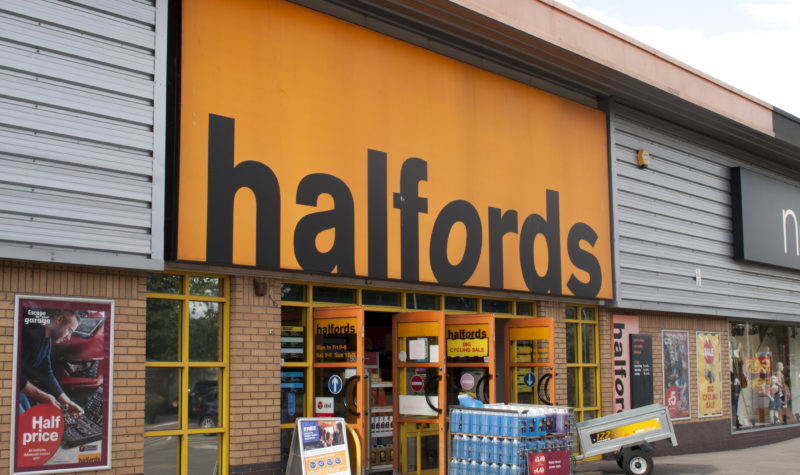Halfords – still plenty of time to get on your bike

Covid-19 has been an absolute boon for Halfords as bike sales soar, writes Mark Watson-Mitchell.
Market research organisation Mintel have reported that last year some 2.5m bicycles were sold in the UK.
Within the next three years they reckon that annual bike sales could top £1bn, as opposed to the £940m value for last year.
Covid-19 has been an absolute boon for Halfords (LON:HFD) as gym-denied fitness fanatics purchased bikes to maintain their agility during the crisis.
But Halfords is not just about bikes. Founded in Leicester way back in 1892, it became a subsidiary of the Burmah Group in 1965 before it was taken out by the Ward Group in 1984. Boots acquired the company in 1989 before being taken over in 2002. It floated two years later.
Although that has been its historic base, its organic growth aided by small acquisitions has seen it emerge as the UK’s leading retailer of motoring, cycling and leisure products and services.
Its Halford Autocentres is one of the UK’s leading independent operators in vehicle servicing, maintenance and repairs.
The Redditch-based group’s customers shop at 446 Halfords stores, four Performance Cycling stores (trading as Tredz and Giant), 371 garages (trading as Halfords Autocentres and McConechy’s) and have access to 77 mobile service vans (trading as Halfords Mobile Expert).
In the last five years the group’s revenues have grown from £1bn to £1.14bn, while its underlying pre-tax profits have fallen back from £81.1m in 2015 to just £58.8m in 2019. Underlying basic earnings have eased back from 32.7p to 24.5p per share in the same period.
On Tuesday of next week (7th) the group will be announcing its final results for the year to 3 April 2020.
In early May this year, the group provided an update on its recent trading and liquidity. It kept open some 325 of its retail stores during the crisis, while 346 of its garages and 77 of its mobile vans were also in operation.
Last year’s figures will not be good, although they should be slightly better than the 2019 results. However, since the year-end, sales have been good, in fact better than anticipated.
At that time Graham Stapleton, the group’s CEO, stated that:
“Whilst trading since our last update at the end of March has been better than anticipated, driven by a strong performance in cycling, considerable uncertainty remains and as such we continue to take all necessary measures to preserve cash and protect our financial position. I am confident the actions we are taking now will put the business in a strong position when we emerge from the crisis and enable us to continue to deliver on our strategic transformation in the medium term.”
The current year will obviously see an impact of Covid-19 upon both sales and profits, but already expectations are for a bounce back next year.
There are some 199m shares in issue, with larger holders including FIL Investment (6.47%), Evenlode Investment (5.20%), Polaris Capital (4.97%), Jupiter Asset (4.95%), Schroder Investment (4.22%), Rathbone Unit Trust (4.11%), Dimensional Fund Advisors ( 4.10%), JO Hambro Capital (4.06%), and Norges Bank Investment (3.76%).
In the last year the group’s shares have been as low as 49.5p in late March 2020 and as high as 229p in July last year.
They closed last night at 156.5p, while the shares are rated by a number of brokers as a ‘buy’, looking for 200p to 250p a share as their objectives.
Liberum’s analyst Adam Tomlinson rates the company has resilience and is going for 250p, similar to Peel Hunt’s Jonathan Pritchard.
I see them trading up to 180p very soon.
Comments (0)